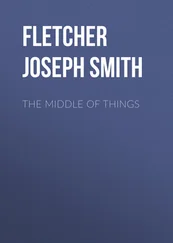IDON’T REMEMBER FOR CERTAIN what other thoughts I had, but what I do know is that, just as soon as I woke up, before getting out of bed and with the sheets still warm, the first thing I thought about was her face. Her gaze has both the tormented weariness of Elias and the blithe energy of Moisés, the silence of Elias and the voice of Moisés. I noticed this yesterday, when she came outside bringing a glass of water and a look that smiled and was sad. When I got her a job at the rich people’s house, she looked at me in the same way. That was the day the sons of Doctor Mateus made a surprise visit and I didn’t recognize his children in those men with neckties, talking so confidently and looking at me warily. I asked them about Doctor Mateus, and he’d died. I asked them about his wife, and she’d died. They said they’d come to get acquainted with the farmstead. This astonished me, since they were born here, but I said nothing, because I know how short people’s memories are. They wanted to see the little garden, because the doctor’s wife had apparently spent the last years of her senility talking about it. They wanted to see the flock of sheep. They also saw, without interest, the vegetable patch. And before they left to see the fields and farmlands, they wanted to enter the house they said was theirs. José’s mother was locked up inside it. I knocked on the front door. I banged with my fists. I banged with the palms of my hands. The sons of Doctor Mateus looked at me. I said I think she’s coming. And I went around the house, banging on all the windows and all the doors. And I went around the house again. We waited. We heard some very faint steps approaching. And she opened the door. She had the gaze of a corpse. Her skin was pale white and stood out from the deep black of her mourning. She had an intensely dark gaze. Her hair was gray and unkempt. We went in, and all the windows were closed. We breathed a foul air, an air that had been there a long time, that reminded me of Doctor Mateus and his wife. There was dust on the cabinets and tables and all the furniture, and the dust was like a second skin on the objects. Cobwebs, thick like lace tablecloths, hung from the corners of the walls and crisscrossed the hallways. The floorboards wheezed or groaned as we walked. Doctor Mateus’s sons looked at each other in terror but said nothing. And as we walked deeper into the house, the stench grew. It was like the smell of a decaying animal, and we were walking toward it. The cracks in the walls seemed to spread before our eyes, and when we entered the main hallway, we realized where all the stench was coming from. In front of the voice shut up inside a trunk there was a stool, and all around, up and down the hallway, were piles of excrement, some dry and some fresh, and the smell of urine and feces was powerful and nauseating. Doctor Mateus’s sons, except for the youngest one, had handkerchiefs to cover their mouths. And it was the youngest one who wasn’t able to keep from retching, and he vomited a mushy stream on the floor of the main hallway. They ran out of the house, and when I caught up with them outside, still getting their wind back, one of them said we want you to find someone else to take care of the house. We want the house to be like when our parents were alive. That same day I spoke with her. She wasn’t yet married to Salomão and began working the next day. She comes here every other day. This afternoon, right after lunch, she’ll show up at the gate to the farmstead, mumble a faint good afternoon to me, and continue on her way. Today, when I woke up, I thought about her face.
I CAME HERE FOR THE FIRST TIME just one week after turning seventeen. Already on that day I took note of the olive tree I’m noticing now. It isn’t a special olive tree or different from any other, but on that day everything was special and different. I noticed that olive tree. Today I notice it because I remember that day. Old Gabriel had told me the previous evening that there was work for me to do at the farmstead, and that night I rested easy. He told me not to go there until the afternoon, and the sun on that day, like today, was fire on my skin. For my birthday Tiago’s wife had given me three skirts she could no longer wear and a scarf she didn’t like. I took the scarf out of the suitcase, ironed it, and wrapped it around my head. It smelled new and was soft: it was the first time I wore it. And to this day I wear it: faded, worn, and rough. The distance seemed shorter to me than it does today, and when I reached the Mount of Olives, old Gabriel dropped what he was doing and joined me. We headed to the rich people’s house, and the closer we got the larger it loomed in my eyes. Old Gabriel showed me which keys to use, and while he struggled with a huge key to open the severely rusted lock, José’s mother peered at us from the concealing depths of her own face. With a gaze at once desperate, threatening, and afraid. We entered. It took a while for our recently sunlit eyes to get used to the absolute darkness, but when I began to see, I realized it was an abandoned but very wealthy house. Old Gabriel told me to cover my mouth and nose. I took the scarf from my head and we entered the main hallway. Without speaking, old Gabriel stopped to look, as if looking were showing, as if showing were explaining. And the voice shut up inside a trunk suddenly said: the wind passes and remains in the leaves that still tremble after it’s gone; no man can stop the wind, because all men are part of the wind. We retreated from the main hallway, and old Gabriel said don’t be afraid, it’s just a voice. I spent that afternoon hauling away buckets of feces. I’d scoop it up with a shovel, cross through the house with a bucket in each hand, and empty them into the wheelbarrow. When the wheelbarrow was full, I’d wheel it to the vegetable patch and dump it onto a compost pile that old Gabriel would use for fertilizer. Tying the scarf around my face to cover my mouth and nose, I stopped a few times to listen to the voice shut up inside a trunk and I began to understand why José’s mother had wanted to spend so much time there. Once when I listened I heard it say: perhaps there’s a light inside men, perhaps a clarity, perhaps men are not made of darkness, perhaps certainties are a breeze inside men, and perhaps men are the certainties they possess.
That afternoon I met José. He had just finished shutting the sheep inside the sheepfold and walked in my direction. His gaze was steady, almost fierce; meek, like a child’s; embarrassed, for being the gaze of a shepherd busy with sheep all day and far away from people; clear. And when he said good afternoon, he already knew who I was. I hesitated just slightly before answering good afternoon, and I also knew who he was. For a week I did nothing at the farmstead but haul filth out of the main hallway. I spent a lot of time sitting next to the voice shut up inside a trunk, listening. And at day’s end, when I was getting ready to go back home, José would arrive and say good afternoon. And those simple words said so much, and more each day. Good afternoon, like a sliver of that waning brilliance, like all the silence of sundown and of the earth beneath that ephemeral and yet eternal light. Good afternoon, and his face full of words, and I breathing them in like a breeze. Good afternoon, and the sky. And on my way home the whole expanse of the plains, the depths of the lingering light, the distance from me to the horizon and beyond it, it was all that voice saying good afternoon and looking at me, it was all his face. I followed the long road back to town and reached home just as night was falling. In the yard I would find my mother where I’d left her. During the day she had built a high tower, or a tree with all its leaves, or another of those faces that were always of the same person but that sometimes smiled and at other times cried, that were sometimes full of life and joy, at other times dead and with the invariable expression of eternal sadness. In those first days, because the house needed it, I went there every day. And before falling asleep, beyond the incoherent words my mother uttered in the silence, I saw nothing but José arriving from the fields and looking at me, looking at me, seeing that I looked at him, we looked at each other.
Читать дальше












